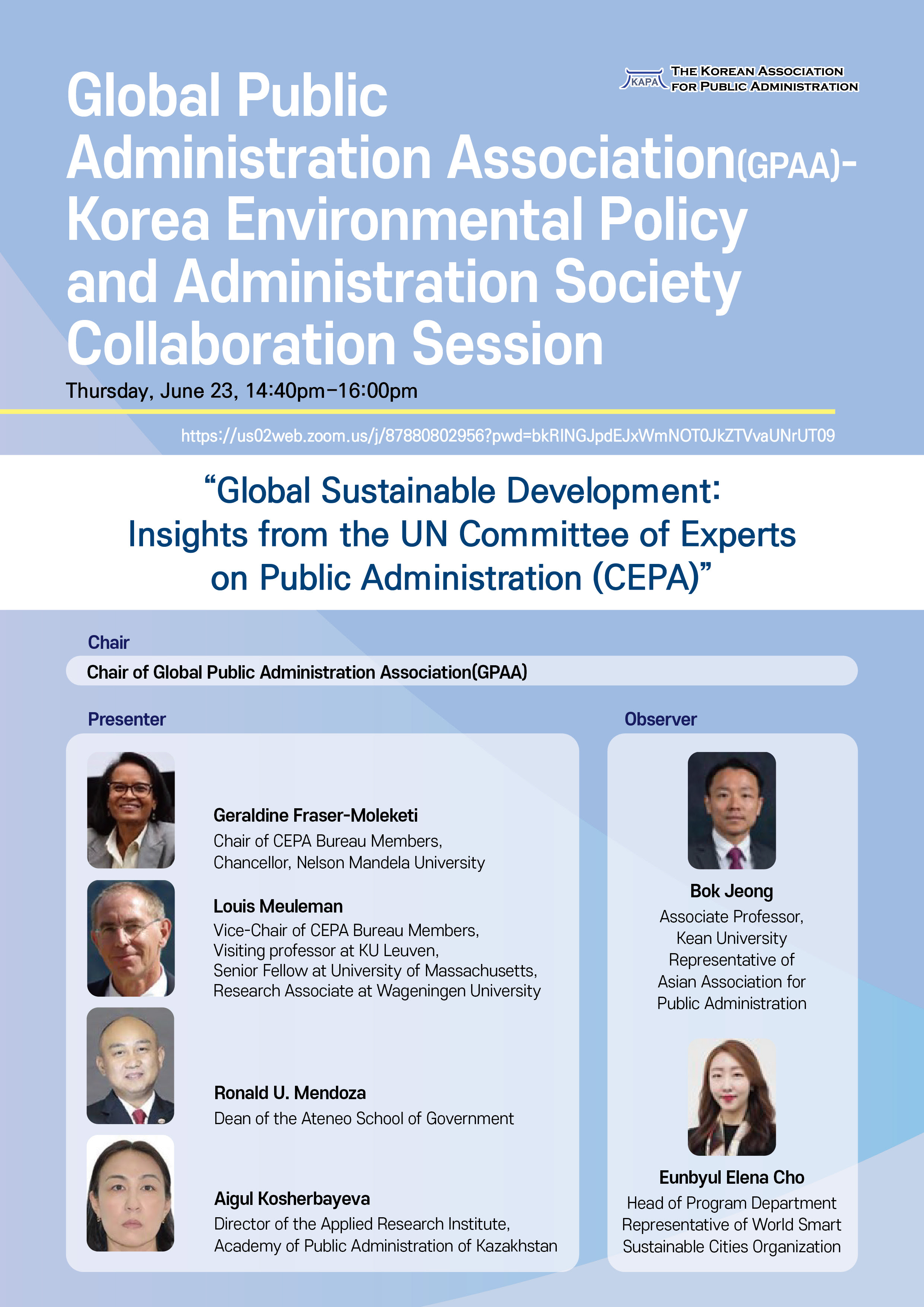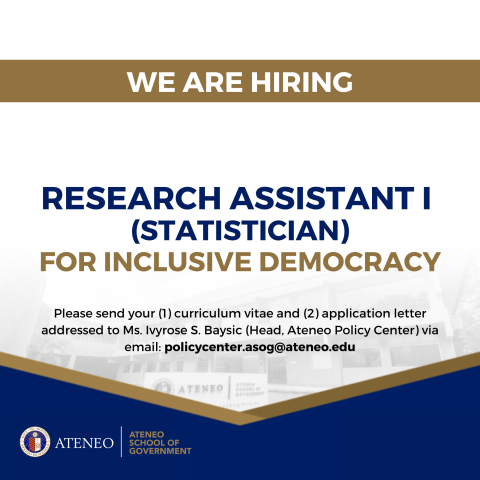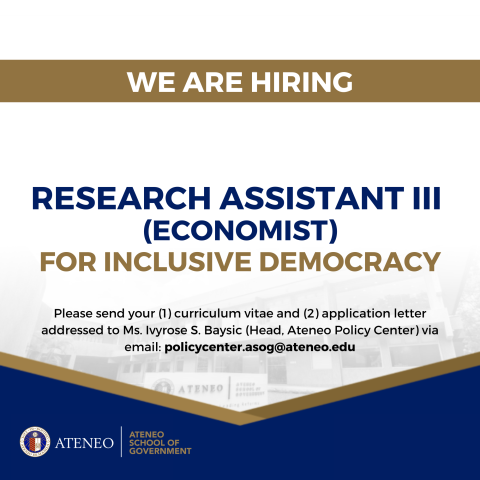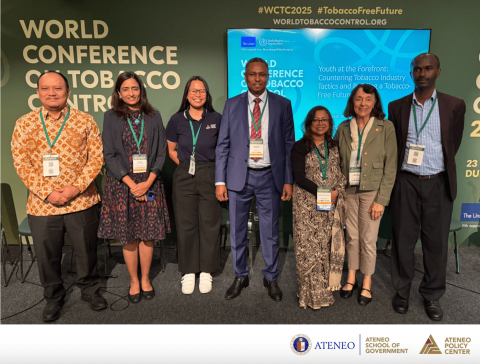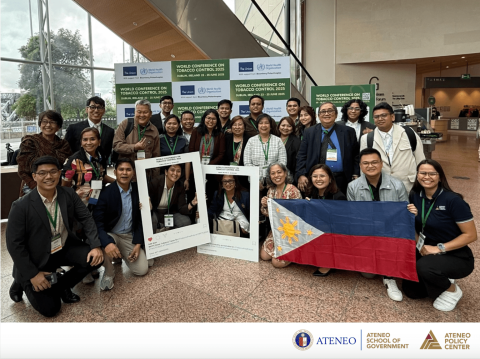ASOG Professor Ronald U. Mendoza presents paper on participatory budgeting at Korean Association of Public Administration (KAPA) conference
18 Jul 2022
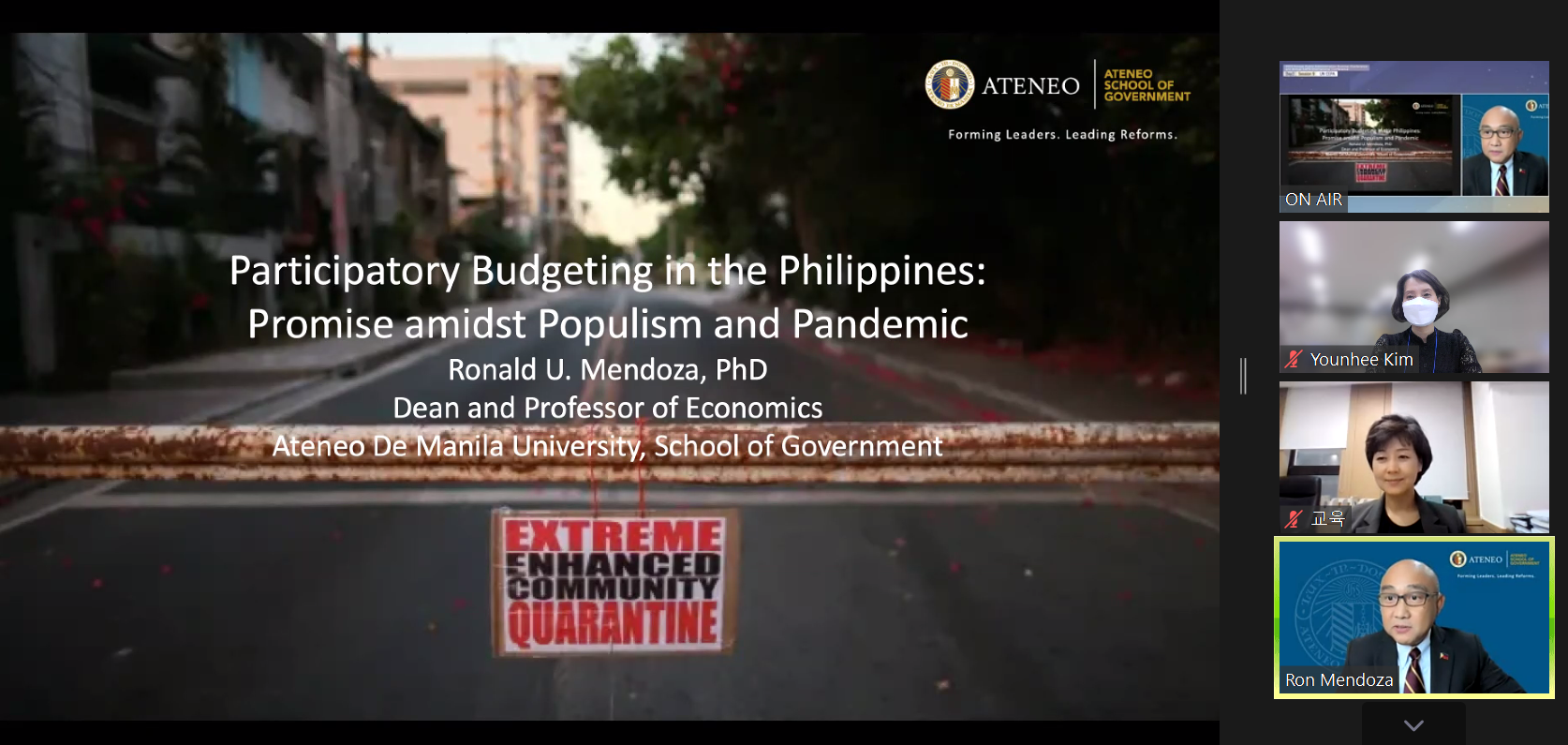
Professor Ron Mendoza recently presented his paper on “Participatory Budgeting in the Philippines: Promise amidst Populism and Pandemic” at the recent policy research conference organized by the Korean Association of Public Administration (KAPA) last 23 June 2022. In a special session featuring members of the UN Committee of Experts on Public Adminisration (CEPA) and organized by Professor Soonae Park of Seoul National University, Graduate School of Public Administration, various facets of the work of UN CEPA were presented, notably in advancing inclusive recovery from the COVID-19 pandemic and promoting the UN Sustainable Developmnt Goals (SDGs). Soonae Park (Professor, Seoul National University, Graduate School of Public Administration and Minister of Education designate, Republic of Korea), Geraldine Fraser-Moleketi (Chancellor of Nelson Mandela University and former Minister of Public Service and Administration), Aigul Kosherbayeva (Vice-Rector for Strategic Development, Research and International Partnership of the Academy of Public Administration of Kazakhstan) and Ron Mendoza participated in the panel.
In his presentation, Professor Mendoza noted how participatory budgeting offers the promise of social accountability through citizens’ engagement in public sector budget allocations. He explained how some of the common elements for success included citizen-centered information access and transparency, representation and aggregation of citizens’ “voice”, minimal constraints on “voice” (and the absence of fear-of-reprisal), clear accountability goals such as reactive vs. preventive policy responses, and finally the state’s capability to respond adequately to citizens’ “voice” (also referred to as “teeth” behind participatory budgeting). Professor Mendoza noted how many initiatives by citizens’ and youth groups during the COVID-19 pandemic helped to advance citizens’ voice and oversight over the budget. However, he also found evidence of much weaker responsiveness by the state to address these issues, highlighting how increased transparency alone may be necessary but insufficient in promoting participatory budgeting.
In early 2021, the United Nations Economic and Social Council (UN ECOSOC) approved Professor Mendoza’s appointment to serve with the 24-person UN Committee of the Experts on Public Administration, where he is now set to serve until 2025. The United Nations Committee of Experts on Public Administration, established by the Economic and Social Council (ECOSOC) in its resolution 2001/45, is comprised of 24 members who meet annually at UN Headquarters in New York. The Committee is responsible for supporting the work of ECOSOC concerning the promotion and development of public administration and governance among Member States notably in relation to the 2030 Agenda for Sustainable Development and in support of the implementation and progress reviews of the Sustainable Development Goals.
Read the full paper here.
